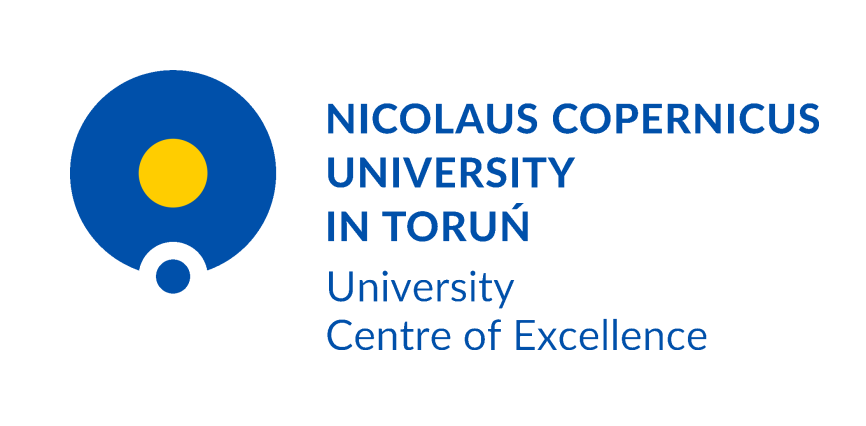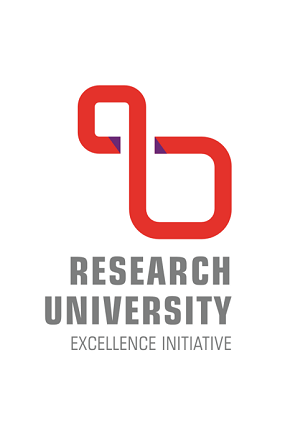EVO Team
EVO – Evolution of Communication Systems
The IMSErt: EVO team was formed basing on the Center for Language Evolution Studies at Nicolaus Copernicus University (CLES NCU) and comprised the CLES members and its collaborating researchers. The IMSErt: EVO team conducts qualitative and quantitative research on language evolution and linguistic phenomena such as politeness, CMC, sound symbolism, gesture, and sign language. Our research aims to contribute to answering questions such as: How did language emerge? How does language evolve? What was the relationship between the original systems of human visual and vocal (proto)communication? Do the new media change the way we communicate? What is the relation between language and cooperation?
We are currently working on several projects funded by the Polish National Science Centre (NCN) and the Polish National Agency for Academic Exchange (NAWA), which include a project on the universality of pantomime and its potential to scaffold the evolution of verbal communication and a project aiming to describe the position of the Science of Language Evolution (SLE) in contemporary science and to structure our knowledge of this area. Our foreign research partners notably include Lund University, the University of Vienna, Roma Tre University, West Australia University, and the University of Lisbon.
The laboratory of the IMSErt: EVO team is located in Collegium Maius in the beautiful Old Town of Toruń. It houses equipment and software, including an EyeLink 1000 Plus eye tracker, a biofeedback set, Rokoko Smartsuit Pro motion capture set, a fully equipped sound and video studio, and a range of software E-Prime with Chronos, LabVanced, nVivoand SPSS. We are part of the Excellence Initiative – Research University Programme at the host institution in Toruń, Poland.
For more info, go to https://imsert.umk.pl/en/ or https://cles.umk.pl/.
Team Leader: Dr Marta Sibierska (read: Team Leaders)
Members:
1. Prof. dr hab. Przemysław Żywiczyński (przemek@umk.pl)
ORCID, Google Scholar, Research Gate
Leader of the Unit for International Collaboration which implements the Strategy “Excellence Initiative – Research University.”
Research interests:
- language evolution;
- experimental semiotics;
- gesture studies;
- conversation analysis.
Scientific achievements:
Przemysław Żywiczyński has authored over 70 research works, including 4 books and articles in IF journal, e.g. Biosemiotics, Interaction Studies, Frontiers in Psychology, Gesture. He co-founded and headed for many years NCU’s Center for Language Evolution Studies (cles.umk.pl). He initiated the PROTOLANG conference series (www.protolang.org) and was the main co-organiser of the 12thEVOLANG congress (Toruń 2018). He is a member of the EVOLANG Permanent Committee, has been a PI of 3 research grants financed by the National Science Center (NCN) and 1 financed by the National Programme for the Development of Humanities (NPRH), has completed a research stay at Lund University financed by the National Programme for Academic Mobility (NAWA) under the Bekker programme, was a member of NCU’s Senate (2012-2016).
Hobby: squash, boxing, history of polar expeditions
2. Michael Pleyer, PhD (pleyer@umk.pl)
ORCID, Google Scholar, Research Gate
Research interests:
- cognitive linguistics;
- language acquisition;
- construction grammar;
- usage-based approaches;
- evolutionary linguistics;
- animal communication.
Scientific achievements:
- PhD (2019) in English Linguistics (Thesis on Perspectivation and Pretend Play in Language Acquisition);
- PhD Scholarship by the Konrad-Adenauer-Foundation;
- author of over 25 research articles in peer-reviewed journals, edited volumes and conference proceedings;
- presented his work at many international conferences;
Hobby: listening to music, going to concerts, watching movies and tv series, social media outreach
3. Prof. Sławomir Wacewicz (wacewicz@umk.pl)
Sławomir Wacewicz holds a PhD in linguistics and is an Associate Professor of Linguistics at Nicolaus Copernicus University in Toruń, Poland. He is a co-founder and head of NCU’s Center for Language Evolution Studies (http://cles.umk.pl). His research into language evolution has resulted in over 40 articles on that subject, published in Biosemiotics, Gesture, Language & Communication, or Language Sciences). The key question considered in his work is that of the earliest forms of language’s evolutionary stability, leading him to formulate the conception of a “platform of trust” as a deep design feature of language that forms a basis for the development of its more advanced characteristics. Sławomir Wacewicz has contributed to the language evolution research community by being the founder of the Protolang conference series, head of the local committee of the Evolang 2018 conference, and associate editor of the Journal of Language Evolution (OUP).
4. Dr Agnieszka Sowińska
ORCID, Google Scholar, Research Gate
Scientific interests:
- discourse analysis;
- healthcare communication;
- linguistic pragmatics;
- nonverbal communication.
Scientific achievements:
- Agnieszka Sowinska has authored over 40 publications, including 1 monograph and 2 co-edited volumes and articles in IF journals, e.g. Discourse Studies, Discourse & Society, Discourse & Communication, Journal of Pragmatics, Gesture or BMC Family Practice;
- Principal Investigator:
- (1) OPUS 2013/11/B/HS2/02449, funded by the Polish National Science Centre (completed);
- (2) Fondecyt 11191027, funded by the Chilean Commission for Scientific and Technological Research (CONICYT) (in progress);
- Collaboration with Research Centre for Cognitive Science at the University in Talca (Chile);
- A member of the International Pragmatics Association.
Hobby: travel, music, swimming
5. Dr Marek Placiński (marpla@doktorant.umk.pl)
ORCID, Research Gate, Google Scholar
Research interests:
- psycholinguistics;
- computational linguistics.
Scientific achievements:
- Principal Investigator in grant funded by the National Science Centre devoted to research on internet communication from the psycholinguistic perspective
Hobby: home barista, sci-fi literature
6. Dr Monika Boruta-Żywiczyńska
ORCID, Google Scholar, Research Gate
Research interests:
- gesture studies
- sign languages and Deaf culture
- neurolinguistics
- language acquisition and development
Scientific achievements:
- Principal Investigator in “Preludium” grant funded by the National Science Centre, devoted to research on language acquisition from the perspective of gesture studies;
Hobby: DIY, board games, nature observation
7. dr Vojtech Fiala
ORCID, Google Scholar, Research Gate
8. Juan Olvido, PhD (The ULAM NAWA Programme)
Juan Olvido Perea García began his academic career with research in linguistics, but his interests shifted towards the communicative functions of the human eye. His research combines knowledge of interaction mechanisms with comparative anatomy, psychology, and evolutionary biology. His work brings a new direction to scientific discussions regarding the functions of the human eye’s appearance: it challenges the widely accepted view of communication as the key function of eye appearance and turns towards the photoregulatory functions of pigment in the eyeball of terrestrial vertebrates, with a particular focus on primates. He finds the greatest joy in testing new hypotheses, combining skepticism and enthusiasm toward the intuitions of others as well as his own.
Doctoral Candidates:
1. Mgr Angelo Delliponti (503302@doktorant.umk.pl)
Research interests:
- cognition based communication models;
- neural basis of communication and language;
- language evolution.
2. Yen Ying Ng, MA
3. mgr Bartłomiej Kiljanek
Research interests
- Psycholinguistics
- Neural basis of language acquisition
- Influence of computer games on foreign language acquisition
- Differences between language and dialect
- Neural plasticity in the context of foreign language acquisition
- Cognitive functioning of the older adults
Hobby: video games, board games, books, early music
4. Svetlana Kuleshova, MA
5. mgr Klaudia Karkowska (karkowska@doktorant.umk.pl)
Research interests:
- Psycholinguistics;
- Non-verbal communication;
- Gesture studies;
- Bilinguality;
- Conversation analysis.
Hobby: History of art, Painting, Pilates


 ul. Fosa Staromiejska 3, 87-100 Toruń
ul. Fosa Staromiejska 3, 87-100 Toruń